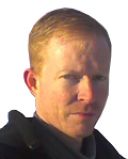
Career
Revisiting the Important Work of R.D. Laing
Towards more humane approaches for those in serious crisis.
Posted April 23, 2012
In the 1960's and 70's, R.D. Laing became a popular public figure. His initial text, The Divided Self, helped make the experience labeled as schizophrenia understandable and it shared his compassion and innate ability to connect with even the most disturbed of persons. Laing opposed the brutal 'treatments' of his time such as ECT. Laing argued for a more humane approach where by communal support and autonomy, one could work through their crisis without force or coercion. This was the premise behind the creation of the Kingsley Hall project which Laing had been personally involved in. Laing's book, The Politics of Experience, went further to challenge psychiatric diagnosis, social problems, and just what the term 'normality' might actually signify. Laing has influenced Rosenhan and his study, Being Sane In Insane Places, where Rosenhan had pseudo-patients seek entry into mental hospitals across the nation. This study was pivotal in showing the subjective nature of psychiatric diagnosis. By the mid 1970's, Laing's influence began to wane. Medicalization of human experience and an unholy alliance between psychiatry and the pharmaceutical industry appears partly responsible for the dismissal of Laing's humane, psycho-social approaches. But now, in 2012, in an era of massive pharmaceutical settlements, continued abuses in the mental health system, and over-medicalization, we may need to return to the ideas that Laing shared. I have seen how the simple process of 'journeying with' as Laing had exemplified can be very powerful. Laing during a trip to the United States had been asked to see a woman who sat for months rocking naked and did not speak. His colleagues were stumped as to how to help this woman. Laing removed his clothing, rocked in unison, and 20 minutes later, they were carrying on a conversation. As he left the room, he asked his colleagues if they had ever thought to do that? And this is exactly what we must be doing, to be bold enough to enter a person's world for what it is.

